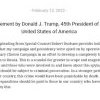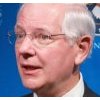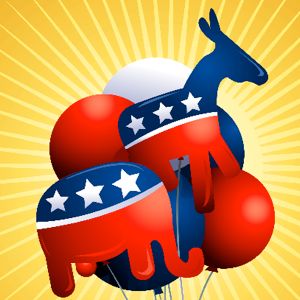Themes
USA: domestic politics
To the outside world, the United States pretends to be a model of democracy. But that is not the case. Fiercely opposed to the notion of "popular sovereignty", the Founding Fathers contrived an ingenious system whereby the people are regularly consulted only to legitimize institutions that deposit power with the oligarchy. Domestically, this system thrives thanks to a series of legal barriers that preclude the emergence of other alternatives and, if need be, through fraud including the use of unverifiable electronic voting machines. Externally, propaganda has served to obscure the incongruity of the institutions. The latter, for instance, prescribe that the president should be elected by a college appointed by State Governors (and not by national popular count, as illustrated by the Supreme Court in 2000 when it overruled the Florida people vote). Nor are we dealing with a republican system of government since it discards the concept of "general interest" as being totalitarian, favouring instead the preponderance of the lobby coalition. A philosophy that has led to the institutionalization of pressure groups, going so far as to legalize and systematize corruption practices in Congress.
Outside the limits of the twin Democratic and Republican parties, a protest movement has been brewing for some time. It picked up considerable momentum during the two presidencies of George W. Bush, whose swaggering style brought to the fore the police control over the population and the rising social injustices. While such opposition had formerly been labeled as "un-american", it acquired legitimacy by highlighting the violations of U.S. ideals at the hands of the U.S. Government itself, ranging from its colonial adventures to its torture policies. As a result of President Obama’s charm offensive, internal opposition was again relegated to the sidelines, despite not having obtained a response to any of their major challenges. In the midst of the economic crisis, deep social fissures dating back to the Secession War have started to reappear. They take the form of a tax revolt, a populist anti-Wall Street movement, or emerge under the guise of separatist tendencies and, last but not least, ethnic hostility. The potential of the United States to either reform or dislocate hinges on these contradictory movements and the balance of power they will generate.















